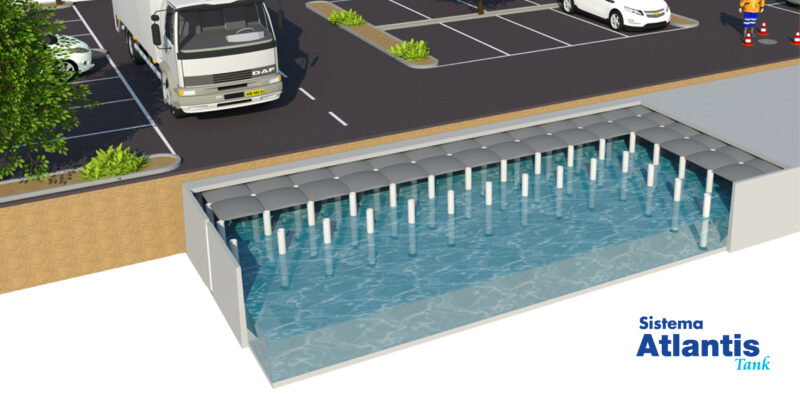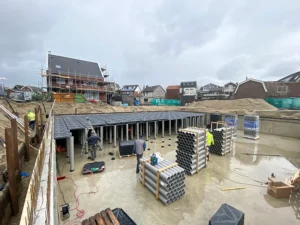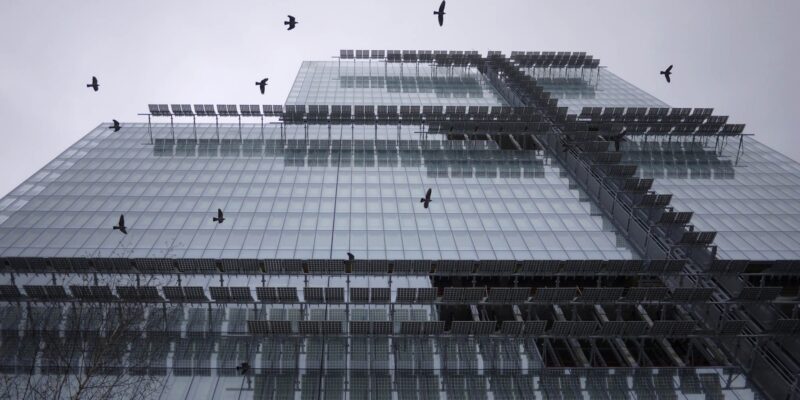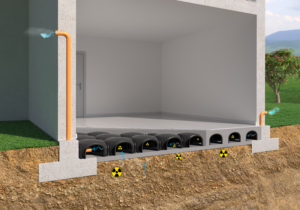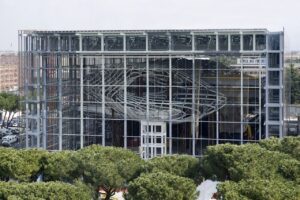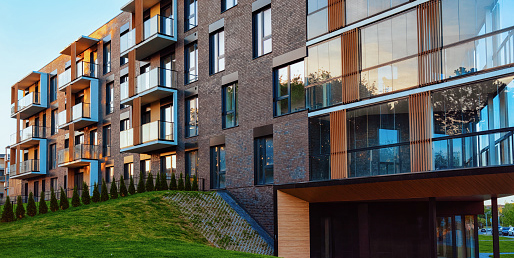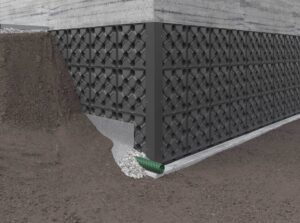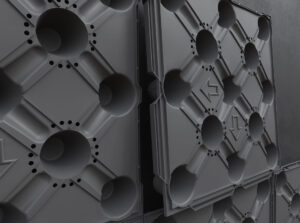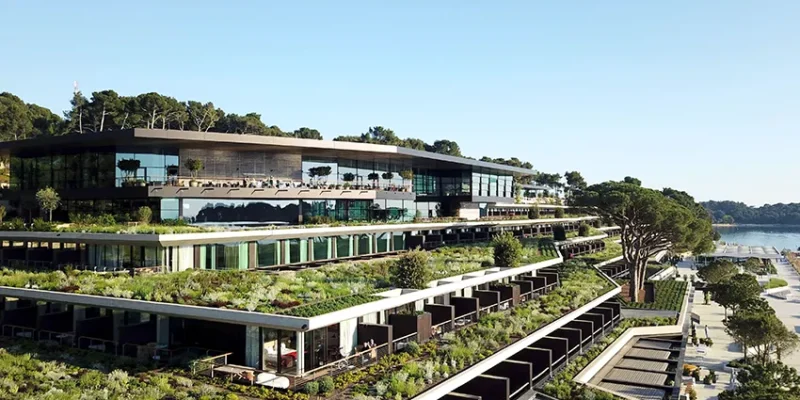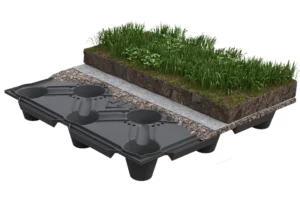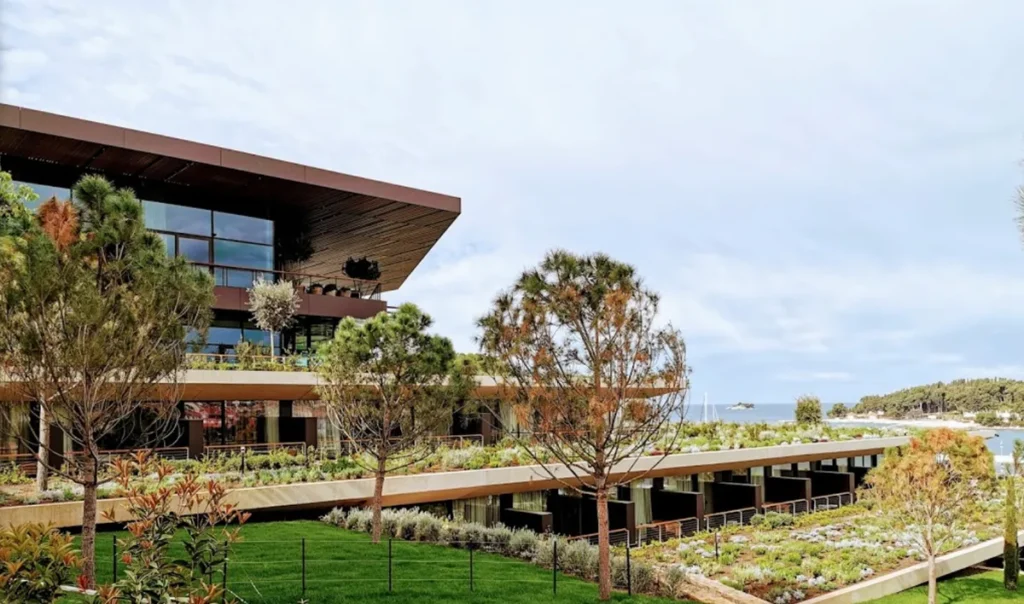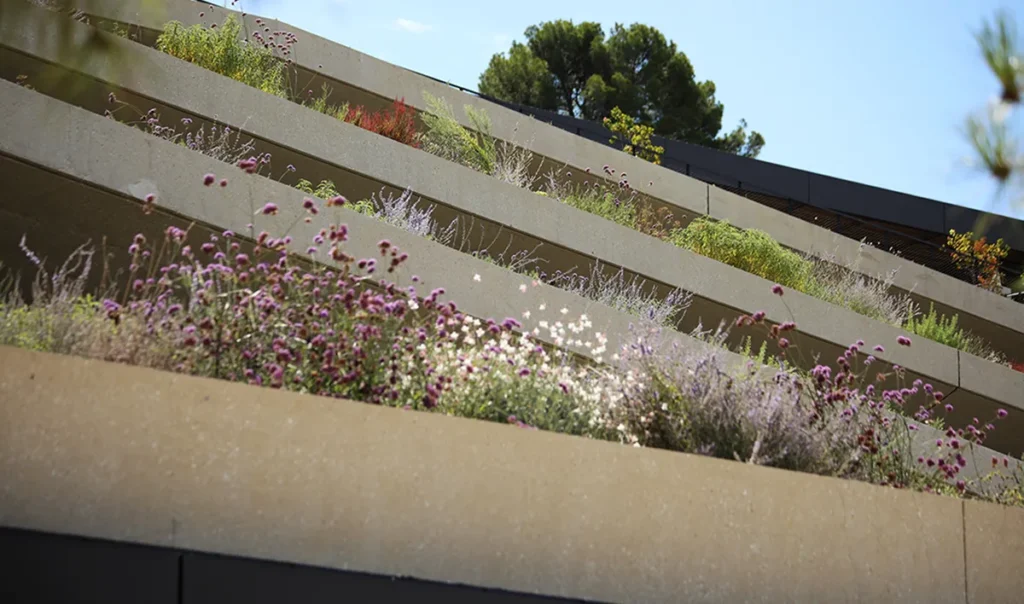Continuous cementation and increasing settlement densities, although necessary for human development, are causing significant changes in surface and groundwater regimes. Additionally, climate change and rising temperatures are altering weather patterns. The most obvious effects of this climatic trend are more intense and concentrated rainfall, followed by extended periods of drought. These extreme weather phenomena significantly increase the likelihood of flooding due to severe and sudden deluges.
Soil sealing prevents rainwater from being absorbed into the ground, shortening runoff time and causing water to reach receiving bodies much more abruptly. This leads to several problems:
- Reduction in Water Reserves: Less rainwater is absorbed, lowering aquifers and risking their depletion.
- Sewer Overload: A sudden increase in the volume of water can jeopardize system functionality, resulting in flooding and associated social costs.
- Water Quality: As water flows through urban areas, it becomes increasingly polluted, leading to greater wastage of drinking water.
- Flood Risk: On a larger scale, river basins can collapse, causing flooding with potentially tragic consequences.
In a context where hydraulic invariance is a standard in new construction, the Atlantis System offers a practical and effective solution for creating water harvesting and lamination tanks. Utilizing the Atlantis System, it is possible to construct rainwater harvesting tanks, dispersion tanks, and water recycling greenhouses. These reinforced concrete tanks, consisting of a bottom slab, perimeter walls, and a top slab supported by columns, are engineered to support a range of loads, including pedestrian walkways, landscaped areas, and car parks.
These tanks can be installed under forecourts, roads, and commercial or industrial car parks to mitigate the effects of flooding caused by exceptional meteorological events. This approach restores the drainage capacity of the ground lost to concrete, without any visual or environmental impact.
Legislation on water protection emphasizes the need for constructing catchment and dispersion basins to prevent flooding and highlights the growing importance of sustainable land transformation. Public authorities can benefit significantly from constructing rainwater dispersion basins. This not only recharges rather than depletes the groundwater table but also eliminates the need to oversize sewer networks as cities expand. Additionally, a comprehensive cost-benefit analysis for an area – be it a municipality, province, or river basin – can facilitate the implementation of a complete hydro-geological rehabilitation plan, thereby significantly reducing the risk of flooding.

